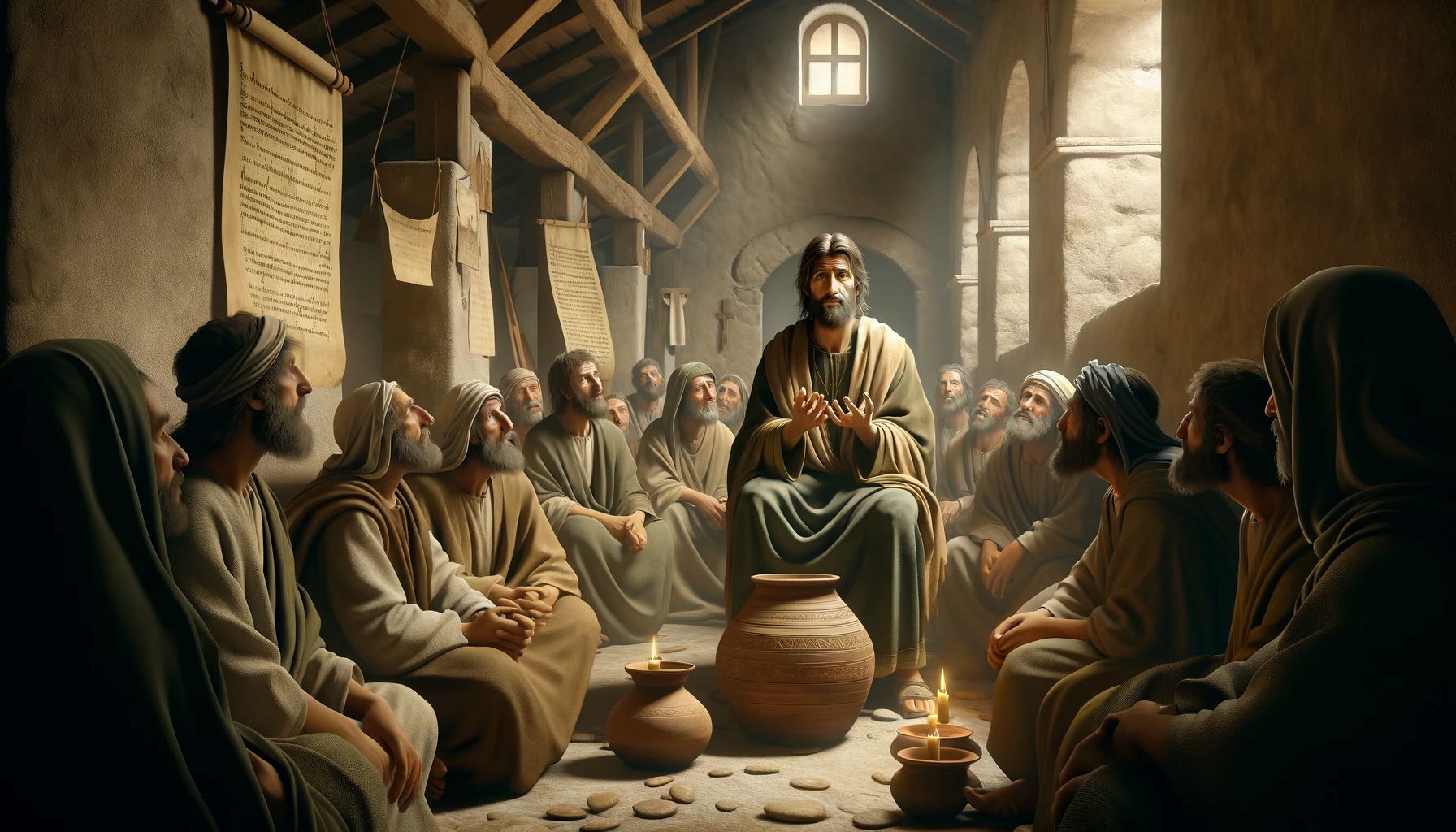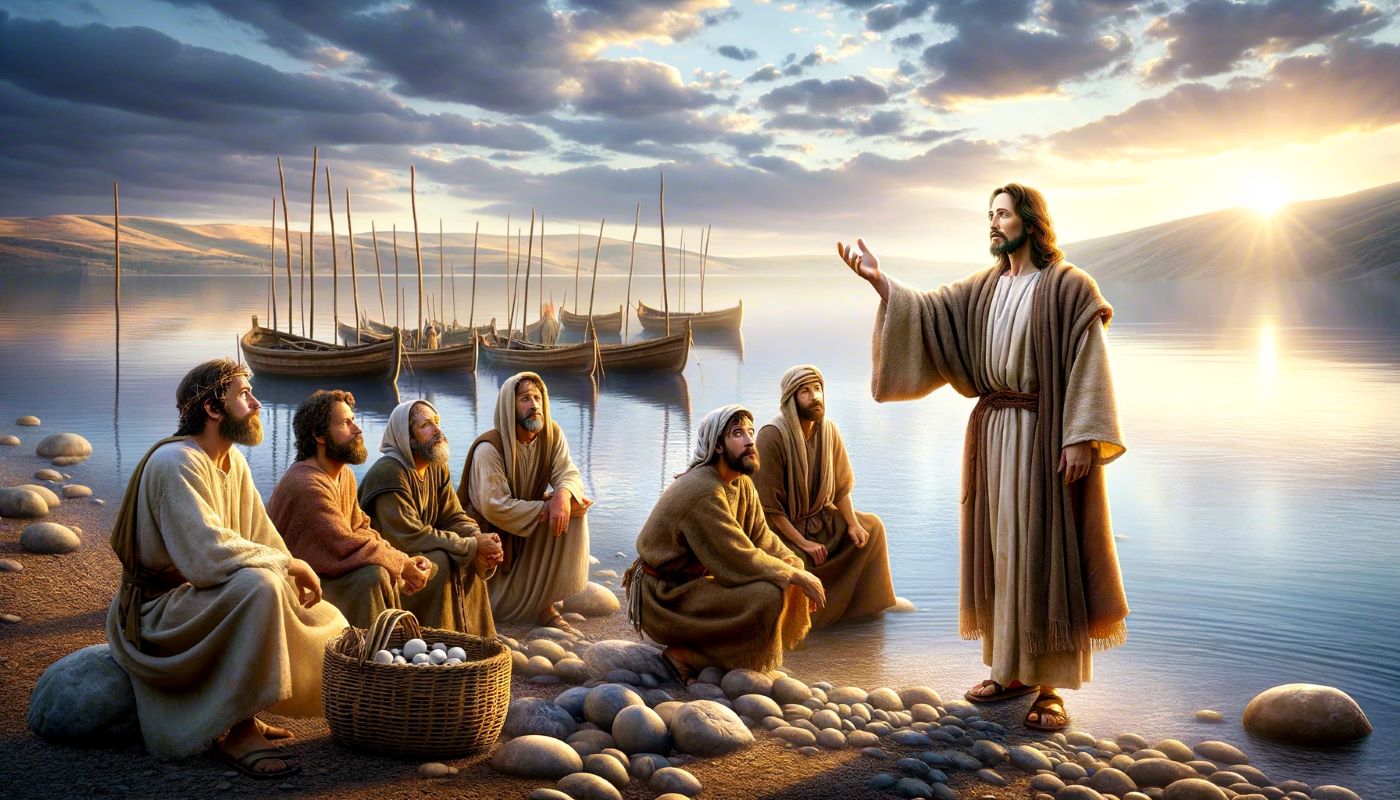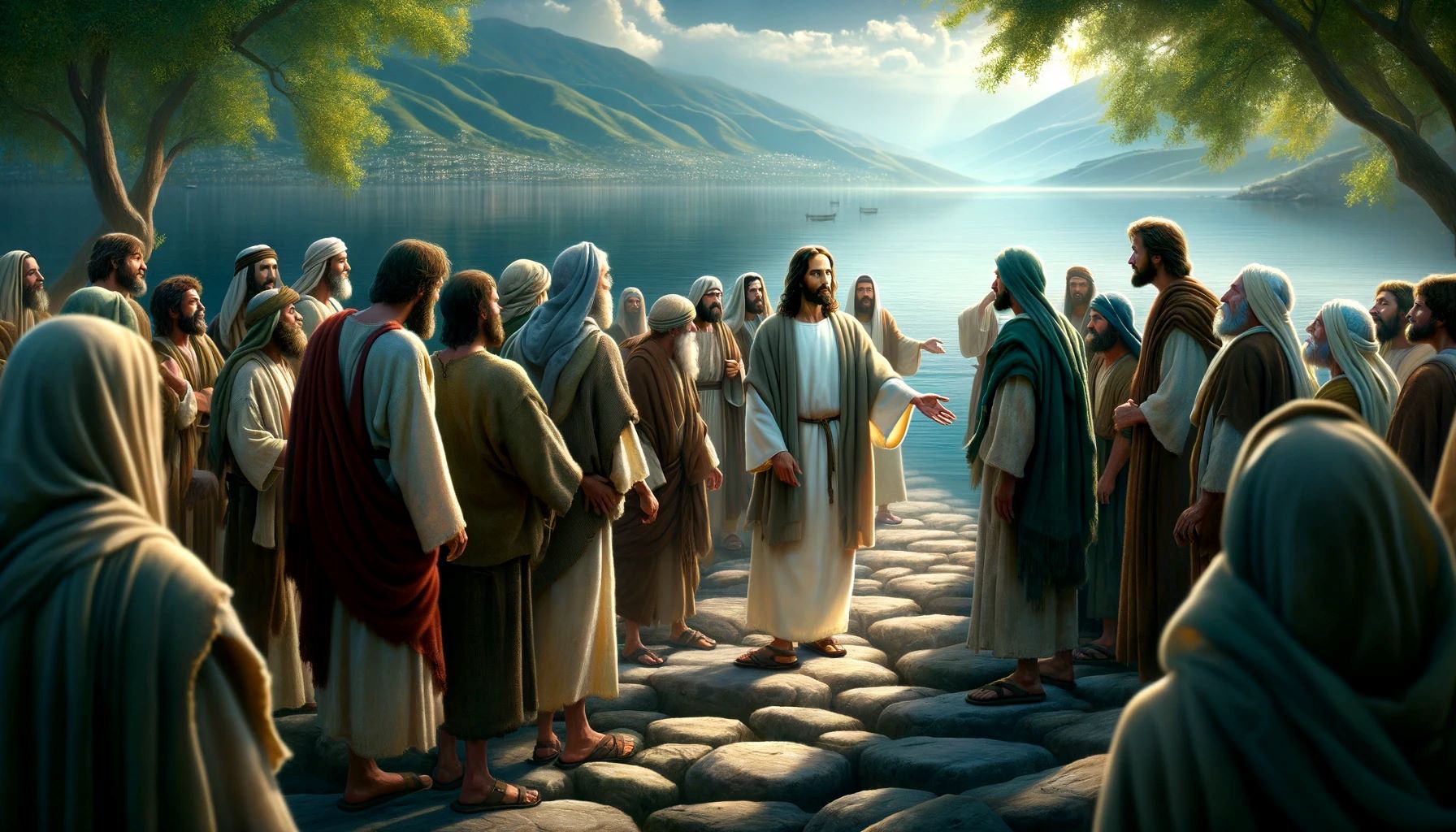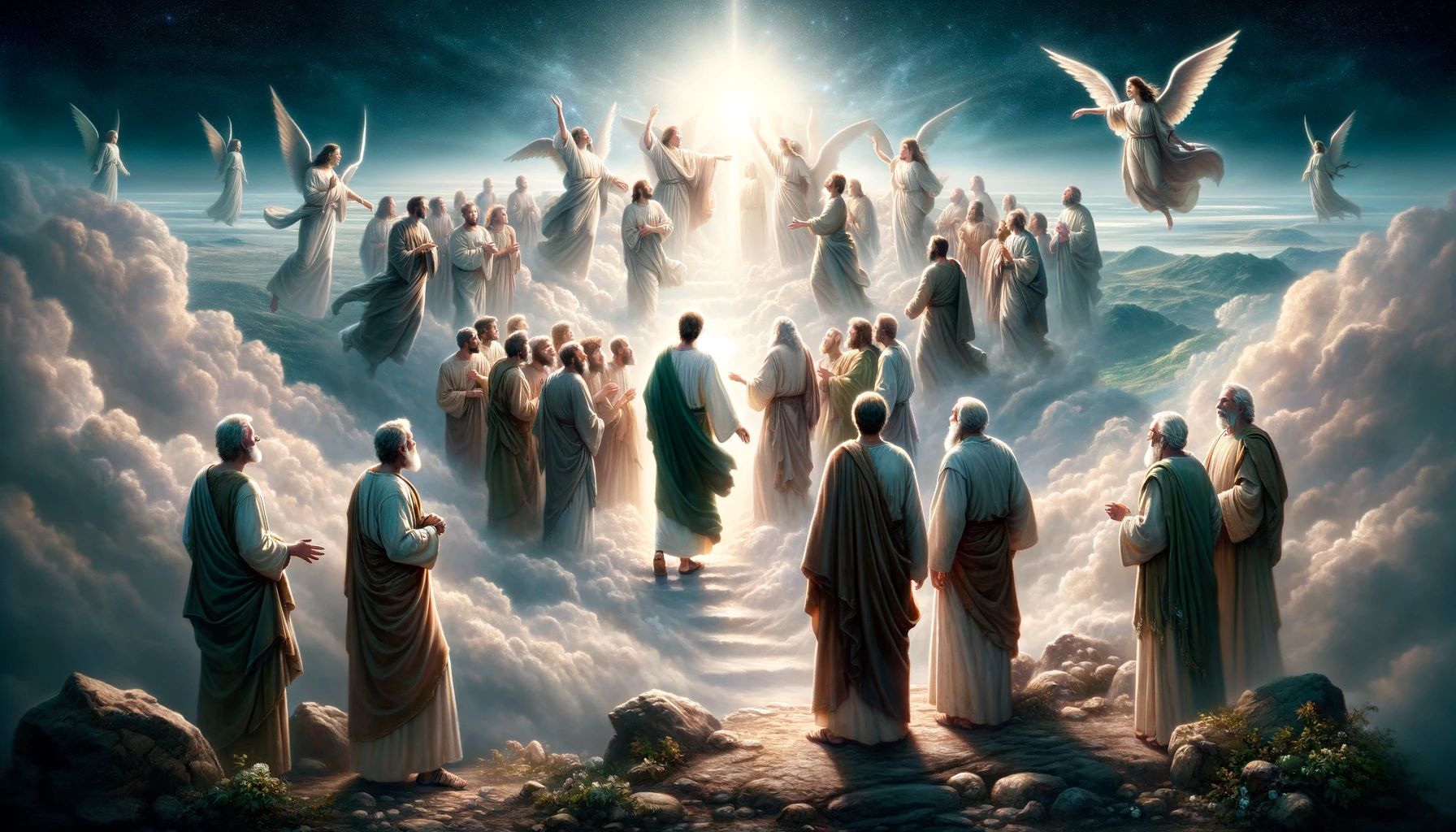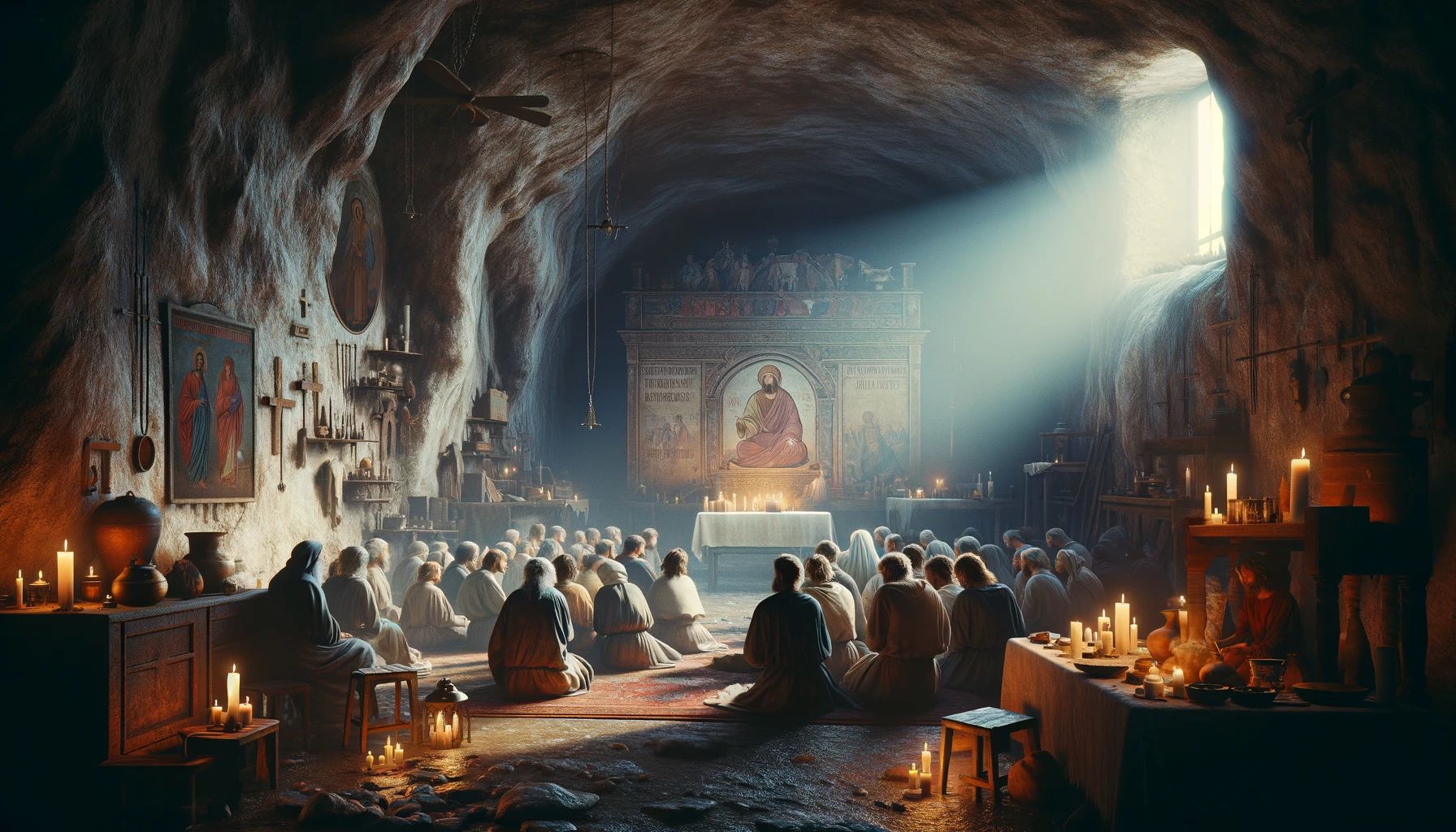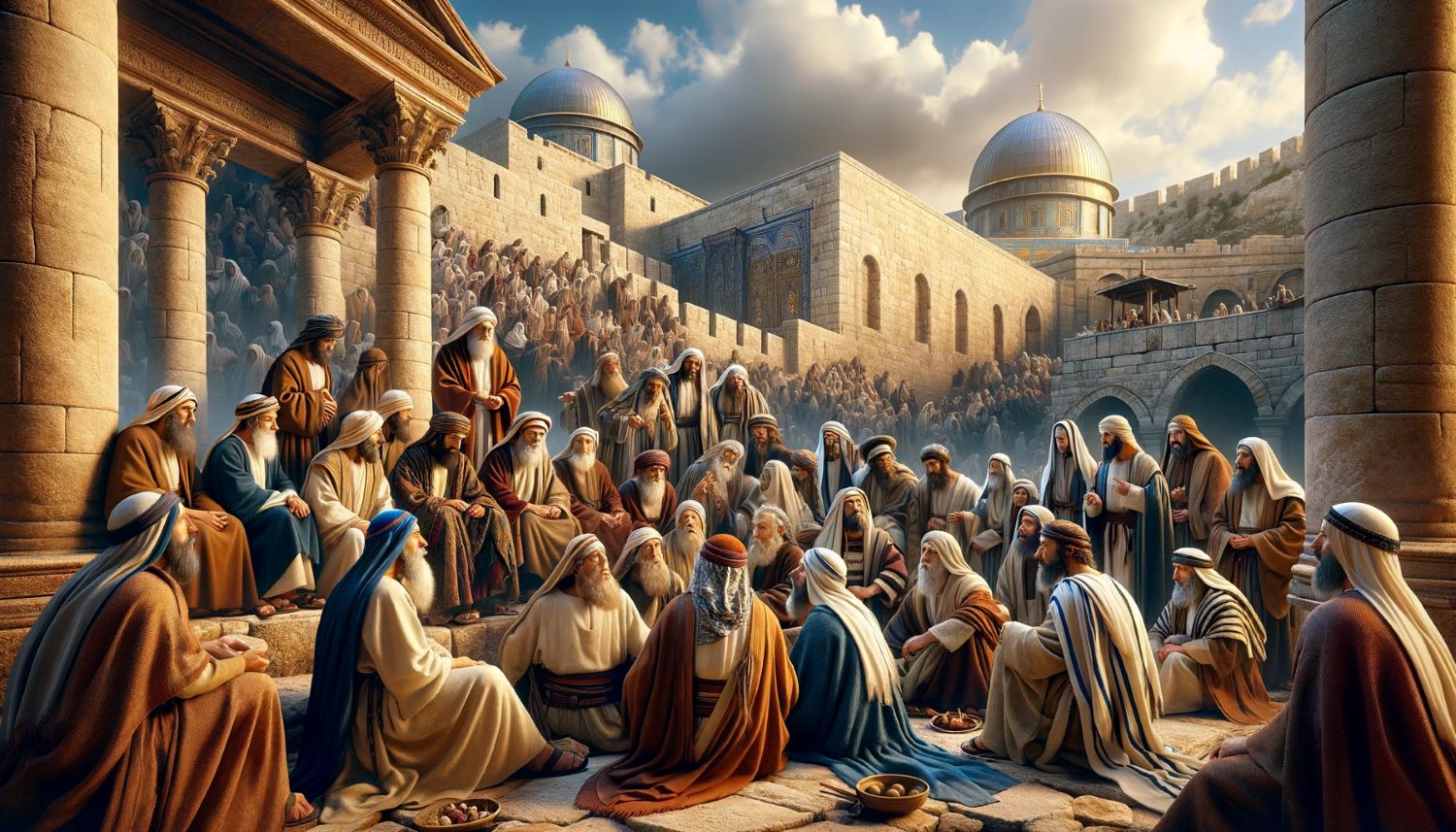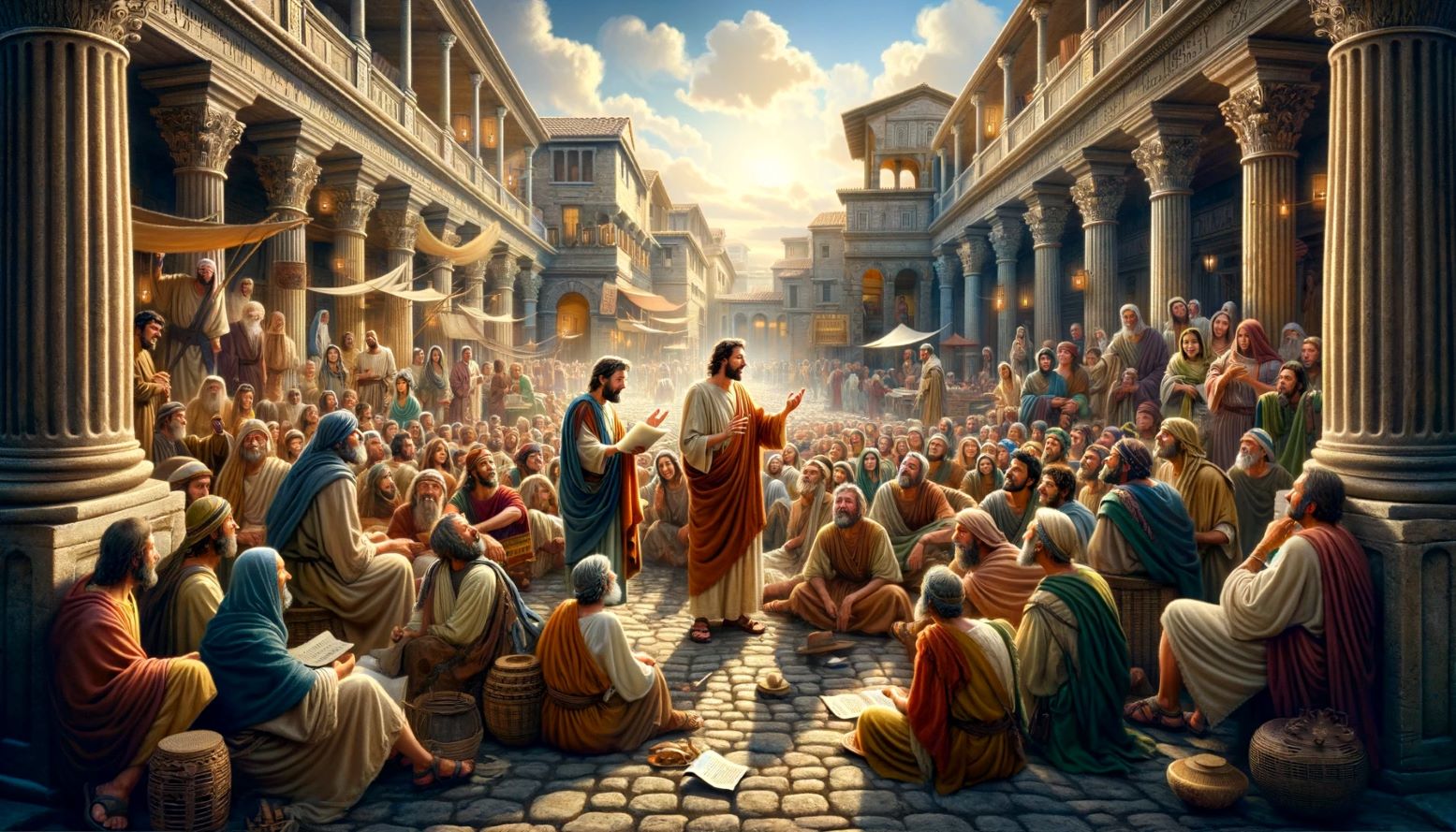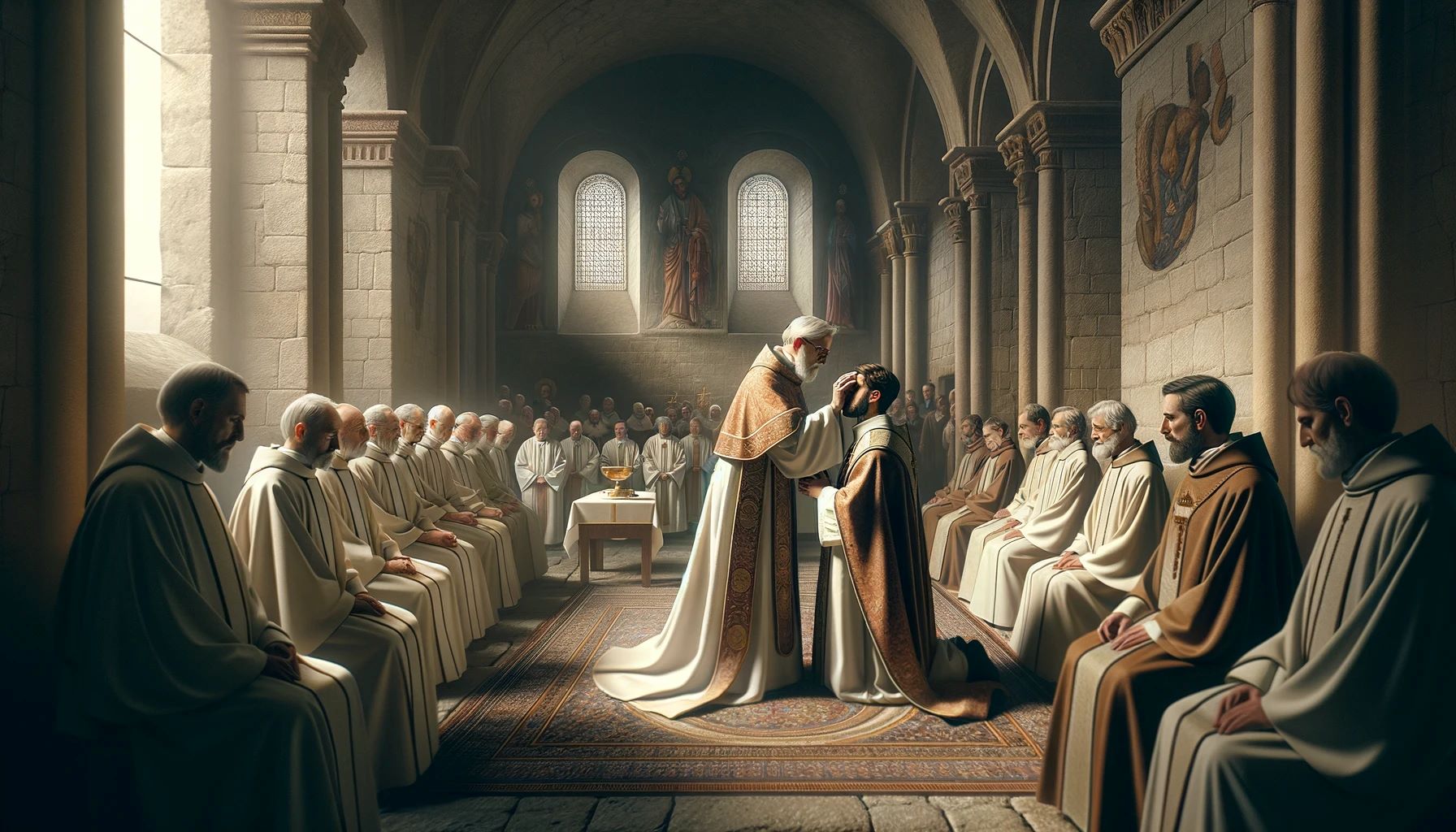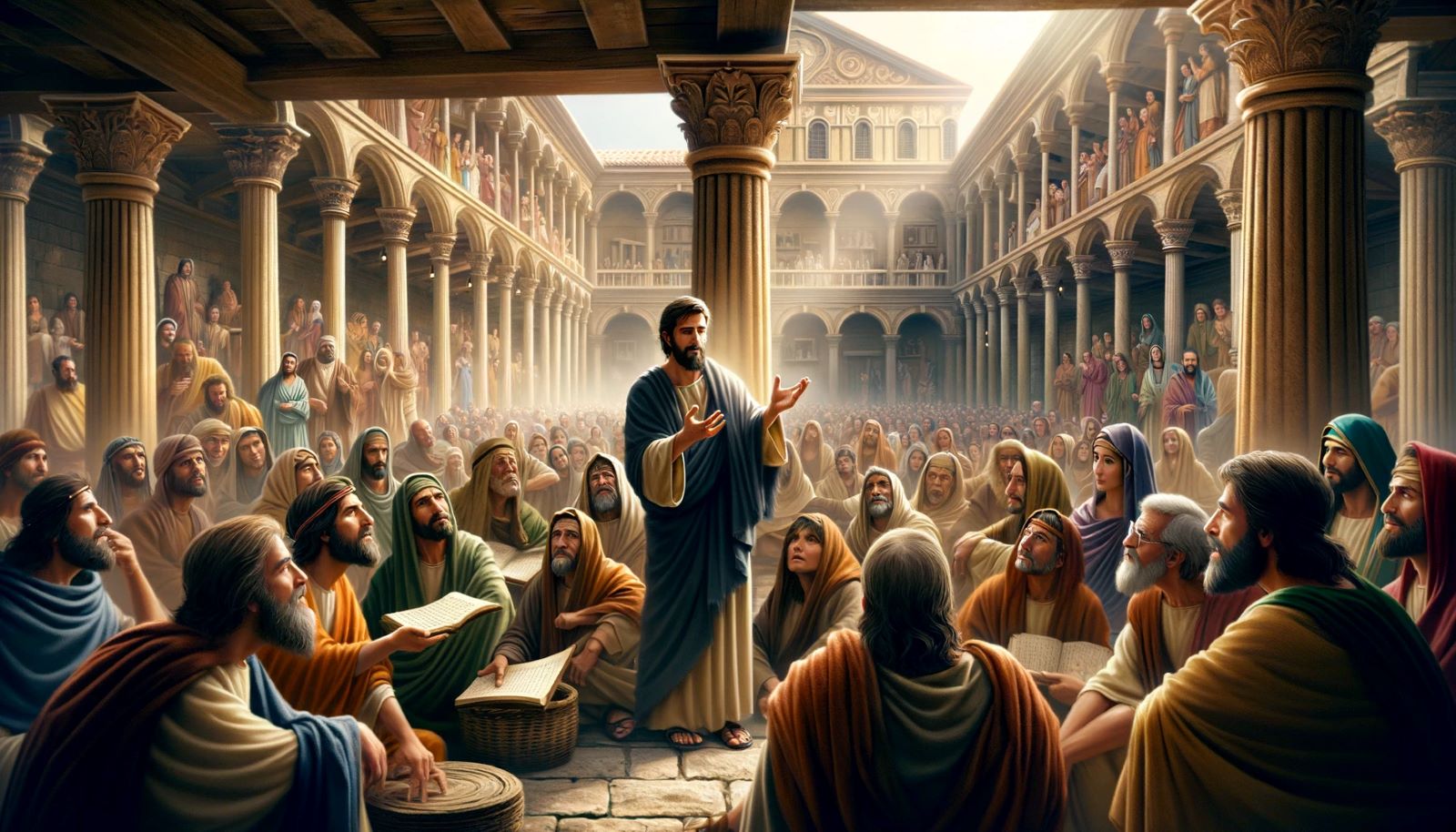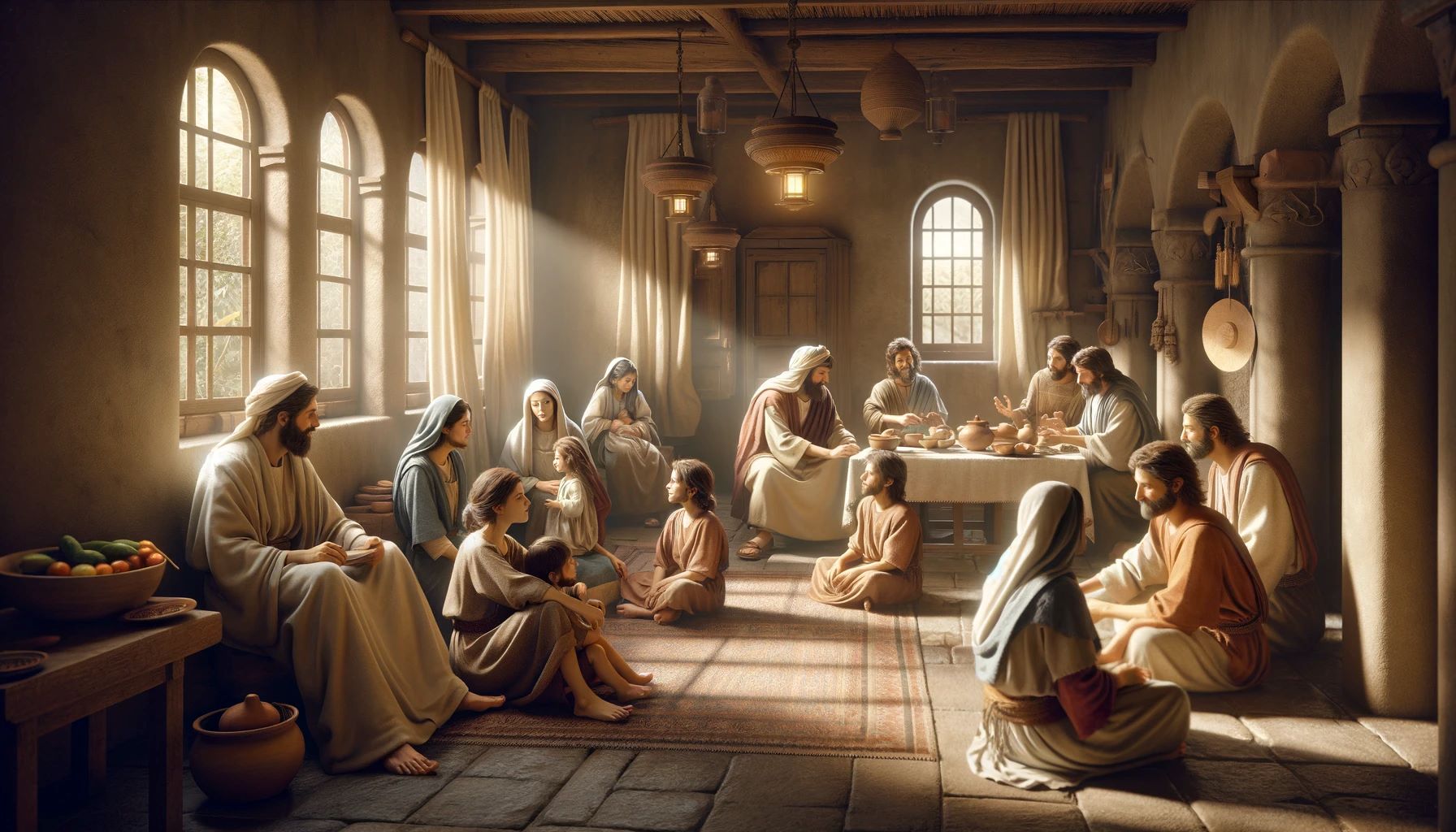Home>Bible Facts>How Long Were The Apostles In The Upper Room
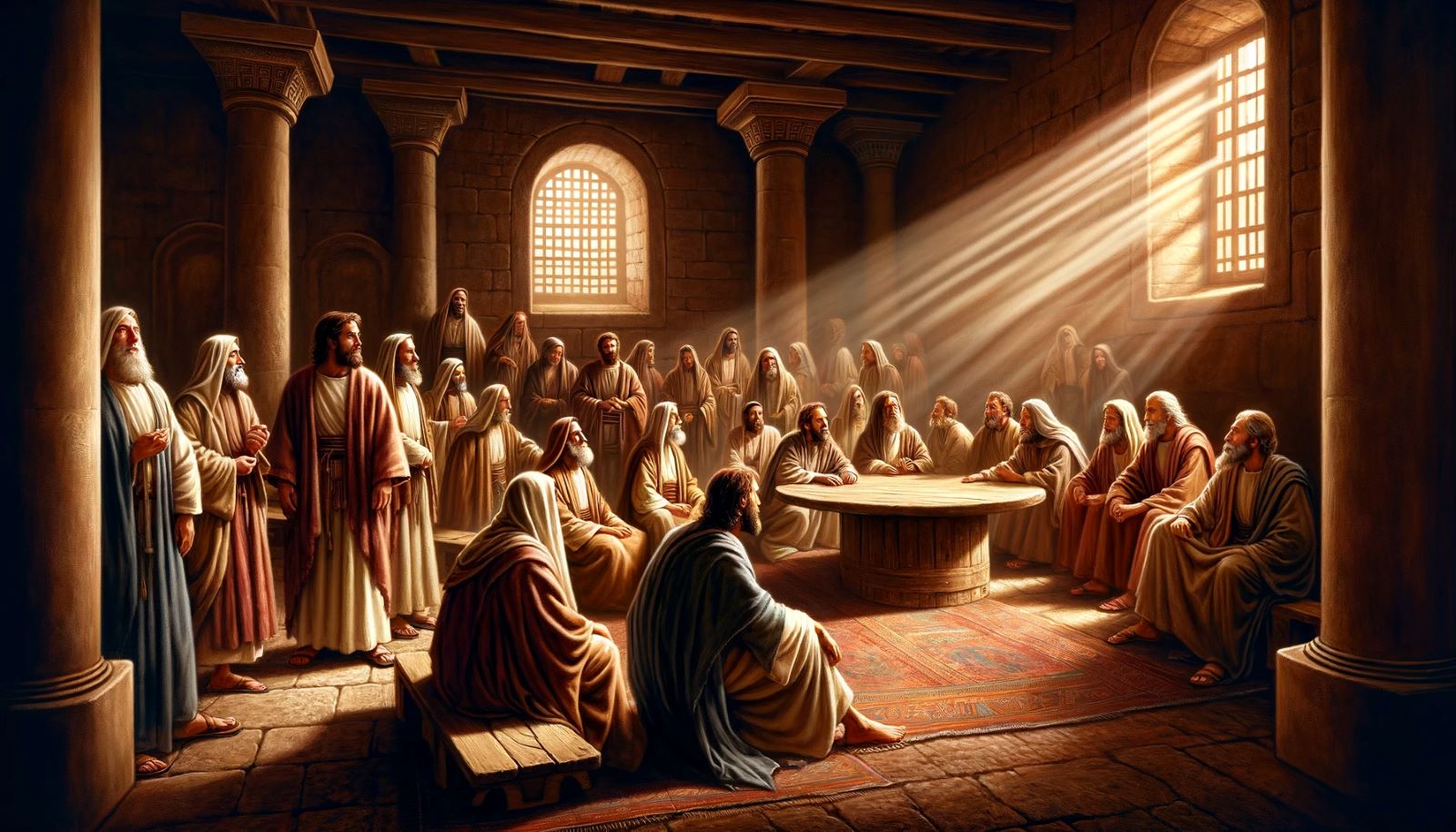

Bible Facts
How Long Were The Apostles In The Upper Room
Published: February 22, 2024
Ericka Andersen, an editor at Christian.net, expertly merges digital strategy with content creation, focusing on faith and societal issues. Her communication skills enhance the platform's engaging narratives, fostering meaningful dialogue on belief's impact on society.
Discover fascinating Bible facts about the time the apostles spent in the Upper Room. Uncover the truth about their stay and its significance. Explore more with us!
(Many of the links in this article redirect to a specific reviewed product. Your purchase of these products through affiliate links helps to generate commission for Christian.net, at no extra cost. Learn more)
Table of Contents
Introduction
The Upper Room holds a significant place in biblical history, particularly in the events following the crucifixion of Jesus Christ. This sacred space served as the setting for pivotal moments in the early Christian faith, including the Last Supper and the outpouring of the Holy Spirit on the Day of Pentecost. The account of the Upper Room is deeply rooted in the New Testament, specifically in the books of Matthew, Mark, Luke, and Acts.
The Upper Room, also known as the "Cenacle," is traditionally believed to be the location where Jesus shared the Last Supper with his disciples before his crucifixion. This intimate gathering marked the institution of the Holy Communion, a central sacrament in Christian worship. Following the resurrection of Jesus, the Upper Room became a place of refuge and prayer for the apostles as they awaited the fulfillment of Christ's promise to send the Holy Spirit.
The events that transpired within the walls of the Upper Room are foundational to the Christian faith, shaping the beliefs and practices of believers for centuries. The significance of this sacred space extends beyond its physical dimensions, encompassing the spiritual and transformative experiences that unfolded within its confines.
As we delve into the biblical account of the Upper Room and explore the length of time the apostles spent in this hallowed space, we gain a deeper understanding of the profound impact it had on the early Christian community and its enduring relevance in contemporary faith. Let us embark on a journey through the scriptures to uncover the mysteries and revelations concealed within the Upper Room, shedding light on its enduring significance in the tapestry of Christian history.
Read more: How May Apostles Were There
The Biblical Account of the Upper Room
The biblical narrative of the Upper Room is intricately woven into the tapestry of Christian history, encapsulating profound moments that shaped the early church. The Gospels of Matthew, Mark, and Luke provide a vivid depiction of the Last Supper, a poignant event that unfolded within the walls of the Upper Room. This sacred gathering marked the institution of the Holy Communion, as Jesus shared bread and wine with his disciples, imparting profound spiritual significance to these elements.
Following the crucifixion and resurrection of Jesus, the Upper Room became a haven for the apostles, serving as a place of refuge and prayer. In the book of Acts, the Upper Room is the backdrop for the anticipation of the promised outpouring of the Holy Spirit. Acts 1:13-14 describes the apostles gathering in the Upper Room, devoting themselves to prayer and supplication as they awaited the fulfillment of Jesus' words regarding the coming of the Holy Spirit.
The significance of the Upper Room extends beyond its physical dimensions; it symbolizes a space of spiritual preparation and expectancy. It was within these walls that the disciples experienced the transformative power of the Holy Spirit on the Day of Pentecost, an event that ignited the spread of the gospel and the birth of the early Christian church.
The Upper Room stands as a testament to the intimate moments shared between Jesus and his disciples, the fervent prayers of the apostles, and the profound encounters with the Holy Spirit. Its significance reverberates through the annals of Christian history, serving as a poignant reminder of the foundational events that shaped the faith of believers.
As we delve into the biblical account of the Upper Room, we are invited to journey back in time, immersing ourselves in the sacred atmosphere of anticipation, prayer, and divine manifestation. The scriptures offer a glimpse into the spiritual dynamics at play within the Upper Room, illuminating the profound impact of these events on the early Christian community and their enduring relevance in contemporary faith.
The Upper Room remains a sacred space that transcends temporal boundaries, encapsulating the essence of spiritual communion, fervent supplication, and the transformative power of the Holy Spirit. It continues to inspire and resonate with believers, serving as a timeless symbol of faith, expectancy, and divine encounter.
The Length of Time Spent in the Upper Room
The duration of the apostles' stay in the Upper Room holds a significant place in the biblical account, signifying a period of profound anticipation and spiritual preparation. While the exact length of time spent by the apostles in the Upper Room is not explicitly stated in the scriptures, the book of Acts provides key insights into the events leading up to the outpouring of the Holy Spirit on the Day of Pentecost.
Following the ascension of Jesus, the apostles, along with other believers, gathered in the Upper Room, devoting themselves to prayer and supplication. Acts 1:13-14 portrays this period as a time of earnest seeking and spiritual unity, as the disciples awaited the fulfillment of Jesus' promise to send the Holy Spirit. The scriptures depict a sense of expectancy and fervent anticipation permeating the atmosphere within the Upper Room, underscoring the significance of this interlude in the early Christian narrative.
The absence of a specific timeframe lends a sense of timelessness to the apostles' sojourn in the Upper Room, emphasizing the spiritual intensity and divine purpose underlying their stay. This period of waiting and seeking divine intervention underscores the pivotal role of patience and steadfast faith in the unfolding of God's plan.
The open-ended nature of the apostles' tenure in the Upper Room invites contemplation on the timeless principles of faith, perseverance, and spiritual readiness. It serves as a poignant reminder of the value of patient expectancy and unwavering trust in God's promises, transcending temporal constraints to resonate with believers across generations.
The apostles' sojourn in the Upper Room embodies the essence of spiritual preparation and expectancy, encapsulating the timeless principles of faith and perseverance. Their steadfast devotion to prayer and supplication underscores the transformative power of patient waiting and spiritual unity, laying the foundation for the momentous outpouring of the Holy Spirit on the Day of Pentecost.
As we reflect on the length of time spent by the apostles in the Upper Room, we are invited to glean timeless truths from this period of spiritual anticipation and unity. The absence of a specific timeframe underscores the enduring relevance of the apostles' experience, serving as a testament to the enduring principles of faith, patience, and spiritual readiness that continue to inspire and guide believers today.
The Significance of the Apostles' Time in the Upper Room
The apostles' time in the Upper Room holds profound significance in the annals of Christian history, encapsulating pivotal moments that shaped the early church and reverberate with timeless relevance. This sacred interlude symbolizes a period of spiritual preparation, fervent prayer, and expectancy, laying the groundwork for the transformative outpouring of the Holy Spirit on the Day of Pentecost.
The Upper Room served as a sanctuary for the apostles, providing a space for reflection, unity, and communion as they awaited the fulfillment of Jesus' promise. Their collective devotion to prayer and supplication within its walls underscores the essence of spiritual unity and expectancy, setting a powerful precedent for believers throughout the ages. This period of waiting exemplifies the value of patient anticipation and steadfast faith, resonating with the universal human experience of longing for divine intervention and guidance.
The apostles' time in the Upper Room embodies the principles of spiritual readiness and unity, serving as a testament to the transformative power of communal prayer and expectancy. Their unwavering commitment to seeking God's will and presence within this sacred space underscores the enduring significance of fervent supplication and spiritual preparation in the life of believers.
Furthermore, the events that transpired within the Upper Room paved the way for the momentous outpouring of the Holy Spirit on the Day of Pentecost. This divine manifestation ignited the spread of the gospel and catalyzed the birth of the early Christian church, marking a watershed moment in the history of faith. The apostles' time in the Upper Room thus becomes a poignant prelude to the extraordinary outpouring of the Holy Spirit, underscoring the profound impact of their spiritual preparation and unity on the subsequent unfolding of God's redemptive plan.
The enduring significance of the apostles' time in the Upper Room transcends temporal boundaries, offering timeless lessons on the value of spiritual expectancy, communal prayer, and steadfast faith. Their collective experience serves as a beacon of inspiration for believers, highlighting the transformative power of spiritual preparation and unity in ushering forth divine intervention and the fulfillment of God's promises.
As we contemplate the significance of the apostles' time in the Upper Room, we are invited to glean enduring truths from their experience, drawing strength from their unwavering faith and unity as we navigate our own spiritual journeys. The Upper Room stands as a timeless testament to the profound impact of spiritual preparation and communal prayer, inspiring believers to embrace the principles of expectancy and unity in their pursuit of divine encounter and fulfillment of God's purposes.
Conclusion
The biblical account of the Upper Room and the apostles' time spent within its hallowed confines offers a profound glimpse into the spiritual dynamics that shaped the early Christian faith. The significance of this sacred space transcends its physical dimensions, embodying the essence of spiritual communion, fervent supplication, and the transformative power of the Holy Spirit. As we reflect on the events that unfolded within the Upper Room and the apostles' anticipation of the promised outpouring of the Holy Spirit, we are invited to glean enduring truths that resonate with believers across generations.
The absence of a specific timeframe for the apostles' stay in the Upper Room underscores the timeless principles of faith, perseverance, and spiritual readiness. Their unwavering commitment to prayer and supplication within its walls serves as a testament to the enduring significance of fervent spiritual preparation and unity in the life of believers. The apostles' collective experience embodies the essence of spiritual expectancy, offering timeless lessons on the value of communal prayer and steadfast faith.
Furthermore, the Upper Room stands as a poignant prelude to the extraordinary outpouring of the Holy Spirit on the Day of Pentecost, marking a watershed moment in the history of faith. The transformative impact of the apostles' time in the Upper Room reverberates through the annals of Christian history, inspiring believers to embrace the principles of spiritual preparation and unity in their pursuit of divine encounter and the fulfillment of God's purposes.
As we contemplate the enduring significance of the Upper Room, we are reminded of the timeless truths encapsulated within its sacred walls. The apostles' unwavering faith, collective prayer, and expectancy serve as a beacon of inspiration, guiding believers to embrace the transformative power of spiritual preparation and communal unity in their spiritual journeys. The Upper Room remains a timeless symbol of faith, expectancy, and divine encounter, inviting believers to emulate the apostles' steadfast devotion as they await the fulfillment of God's promises in their lives.
In conclusion, the biblical account of the Upper Room and the apostles' time spent within its sacred confines offers a timeless testament to the enduring principles of faith, perseverance, and spiritual readiness. The significance of this sacred space extends beyond its historical context, resonating with believers as a symbol of spiritual communion, fervent supplication, and the transformative power of the Holy Spirit. As we carry the legacy of the Upper Room into our own spiritual journeys, may we draw strength from the apostles' unwavering faith and unity, embracing the principles of spiritual preparation and communal prayer as we await the fulfillment of God's promises in our lives.
